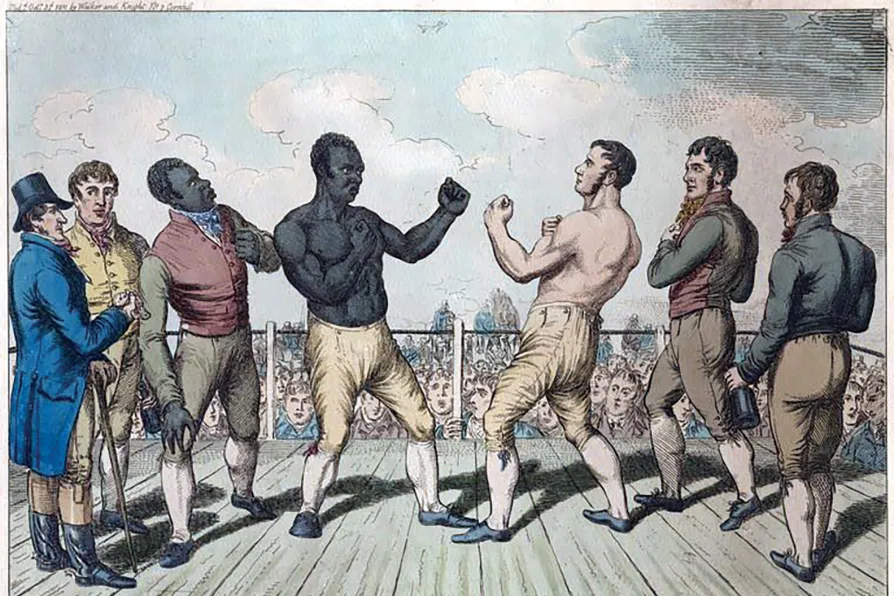
 A print representing the start of a boxing match between Tom Molineaux and Thomas Cribb, on September 28, 1811 at Thistleton Gap in Rutland.
[Public Domain]
A print representing the start of a boxing match between Tom Molineaux and Thomas Cribb, on September 28, 1811 at Thistleton Gap in Rutland.
[Public Domain]
THE GREAT and most famous anti-US slavery abolitionist, Frederick Douglass, railed against the way southern slave masters regularly pitted their slaves against those of other slave masters in boxing and wrestling matches and gambled on the outcome.
Douglass described these bouts as “safety valves, designed to carry off the rebellious spirit of enslaved humanity.”
In her magisterial work — Boxing: A Cultural History — Kasia Boddy reveals that “Douglass set up a school to teach his fellow slaves to read, but this had to be kept secret, ‘for they (the slave masters) had much rather see us engaged in these degrading sports, than to see us behaving like intellectual, moral, and accountable beings’.”

When Patterson and Liston met in the ring in 1962, it was more than a title bout — it was a collision of two black archetypes shaped by white America’s fears and fantasies, writes JOHN WIGHT

JOHN WIGHT tells the riveting story of one of the most controversial fights in the history of boxing and how, ultimately, Ali and Liston were controlled by others












